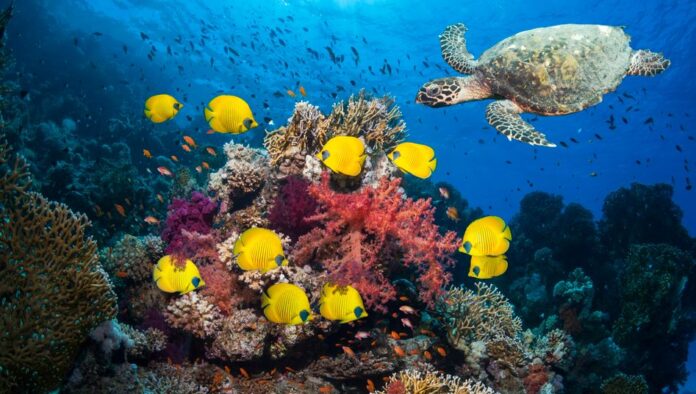Nations will have to rethink economic growth as a measure of success if they want to make good on pledges to halt the destruction of the natural world says a report published today.
The Dasgupta Review commissioned by the UK Treasury saaid that fundamental change in how we think about and approach economics is needed if we are to reverse biodiversity loss and protect and enhance our prosperity
The Review argues that nature is our most precious asset and that significant declines in biodiversity are undermining the productivity, resilience and adaptability of nature. This in turn has put our economies, livelihoods and well-being at risk.
The Review finds that humanity has collectively mis-managed its global portfolio of assets, meaning the demands on nature far exceed its capacity to supply the goods and services we all rely on.
The Review makes clear that urgent and transformative action taken now would be significantly less costly than delay and will require change on three broad fronts:
Humanity must ensure its demands on nature do not exceed its sustainable supply and must increase the global supply of natural assets relative to their current level. For example, expanding and improving management of Protected Areas; increasing investment in Nature-based Solutions; and deploying policies that discourage damaging forms of consumption and production.
We should adopt different metrics for economic success and move towards an inclusive measure of wealth that accounts for the benefits from investing in natural assets and helps to make clear the trade-offs between investments in different assets. Introducing natural capital into national accounting systems is a critical step.
We must transform our institutions and systems – particularly finance and education – to enable these changes and sustain them for future generations. For example, by increasing public and private financial flows that enhance our natural assets and decrease those that degrade them; and by empowering citizens to make informed choices and demand change, including by firmly establishing the natural world in education policy.
Professor Dasgupta said:
Truly sustainable economic growth and development means recognising that our long-term prosperity relies on rebalancing our demand of nature’s goods and services with its capacity to supply them. It also means accounting fully for the impact of our interactions with Nature across all levels of society. COVID-19 has shown us what can happen when we don’t do this.Nature is our home. Good economics demands we manage it better.
Sir David Attenborough said:
The survival of the natural world depends on maintaining its complexity, its biodiversity. Putting things right requires a universal understanding of how these complex systems work. That applies to economics too.This comprehensive and immensely important report shows us how by bringing economics and ecology face to face, we can help to save the natural world and in doing so save ourselves.
Tanya Steele, Chief Executive at WWF said:
“The findings of the Review are clear: nature underpins our economies and our prosperity. Our failure to recognise this fundamental truth, and take steps to reverse nature loss, is costing us dear. To safeguard our future, we must transform our economies and finance systems, so they are geared towards restoring the natural world on which we all depend.
“Our climate and nature goals need to become a core part of how decisions are made on all aspects of policy – and in particular economic and fiscal policy, with a test to make sure public spending aligns with the Government’s net zero commitments.
“We also need the UK Government to throw its full weight behind establishing a new Global Commission on Economy and Nature – because if we’re going to succeed, we need to see countries working together to tackle this enormous threat.”







